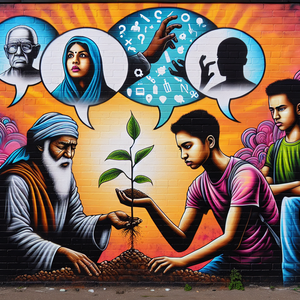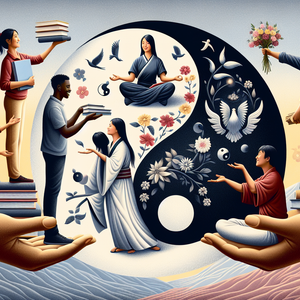Strands of Sustainability: Innovations in Eco-Friendly Textiles

The textile industry is one of the largest polluters globally, with fast fashion contributing to massive waste, water pollution, and greenhouse gas emissions. According to reports from organizations like the Ellen MacArthur Foundation, the fashion industry accounts for about 10% of global carbon emissions. In response to this crisis, a growing number of designers and brands are embracing sustainability as a core principle. This shift is not merely a trend; it is a necessity for ensuring the longevity of our planet and its resources.
Innovative Materials from Recycled Products
One of the most promising developments in sustainable textiles is the use of recycled materials. Brands are increasingly turning to post-consumer waste, such as plastic bottles, to create new fabrics. For example, polyester made from recycled PET (polyethylene terephthalate) bottles has become a popular alternative to virgin polyester. This innovative approach not only reduces landfill waste but also decreases the demand for petroleum-based materials. An inspiring example is the brand Ecolife, which produces stylish activewear from recycled ocean plastics. By transforming waste into high-quality garments, Ecolife not only helps clean up the oceans but also raises awareness about the impact of plastic pollution. Similarly, Rothy's, known for its sustainable shoes, utilizes recycled plastic water bottles to create a fabric that is both durable and lightweight. Their model exemplifies how innovative recycling can lead to fashionable products while addressing the environmental crisis.
Organic Farming Practices
Another significant aspect of sustainable textiles is the shift towards organic farming. Traditional cotton farming consumes vast amounts of water and harmful pesticides, contributing to environmental degradation and health issues for farmers. In contrast, organic cotton is grown without synthetic fertilizers or pesticides, promoting biodiversity and reducing water usage. Brands like Patagonia have been at the forefront of promoting organic cotton in their collections. Patagonia's commitment to sustainable sourcing is evident in their Organic Cotton T-Shirt, which not only supports farmers but also appeals to eco-conscious consumers. By choosing organic materials, brands can mitigate their environmental impact while promoting ethical practices within the textile industry. Furthermore, initiatives like the Better Cotton Initiative aim to transform cotton production globally by encouraging sustainable farming practices and supporting farmers in adopting more eco-friendly methods.
Cutting-Edge Technologies
Innovations in technology are also playing a critical role in the evolution of sustainable textiles. Techniques such as 3D knitting and digital printing are revolutionizing the way fabrics are created, significantly reducing waste in the production process. 3D knitting allows for the creation of garments with minimal material waste, as it produces items in a single, seamless piece. This method not only conserves resources but also allows for customized designs that cater to consumer preferences. Moreover, technologies like biofabrication are paving the way for the creation of textiles from natural materials, such as mushrooms and algae. Companies like MycoWorks are developing leather-like materials from mycelium, offering a cruelty-free and biodegradable alternative to traditional leather. This not only addresses ethical concerns but also provides a sustainable option for consumers looking for eco-friendly fashion choices. The use of digital printing also reduces water consumption and waste, as it enables manufacturers to produce intricate designs without the need for excessive dyes or chemicals.
Consumer Responsibility and Ethical Fashion
While innovations in eco-friendly textiles are promising, consumer behavior remains crucial in driving the industry towards sustainability. Awareness and education about the impact of fast fashion can empower consumers to make informed choices. By opting for sustainable brands and supporting ethical practices, shoppers can contribute to a more significant movement toward environmental responsibility. Organizations like the Fashion Revolution advocate for transparency in the fashion supply chain, encouraging consumers to ask brands, 'Who made my clothes?' This call for accountability fosters a culture of sustainability and ethical practices within the industry. The rise of platforms that facilitate second-hand shopping, such as Depop and ThredUp, also highlights a shift in consumer values, prioritizing sustainability over fast fashion.
The strands of sustainability are intricately woven into the future of fashion, offering innovative solutions that address the industry's environmental challenges. From recycled materials to organic farming and cutting-edge technologies, the movement towards eco-friendly textiles is gaining momentum. As consumers become increasingly aware of their power to influence change, the demand for sustainable practices will only grow. By embracing sustainable textiles, we can reshape the fashion landscape and contribute to a healthier, more sustainable planet for future generations. The journey towards sustainability is not just about innovation; it is about creating a culture of responsibility, awareness, and respect for our environment. As we move forward, the collaboration between brands, consumers, and innovators will be essential in weaving a sustainable future for the fashion industry.
Sustainable Fashion Designer
Patagonia, Ecolife
Core Responsibilities
Design and develop clothing lines that prioritize eco-friendly materials and sustainable practices.
Collaborate with textile manufacturers to source organic and recycled materials for collections.
Conduct market research to identify trends in sustainable fashion and consumer preferences.
Required Skills
Proficiency in design software such as Adobe Illustrator and CAD.
Strong understanding of sustainable materials and production processes.
Creativity and innovation in designing fashion-forward yet environmentally conscious apparel.
Common Employers
Brands like Patagonia and Ecolife, as well as emerging sustainable fashion startups.
Textile Sustainability Consultant
Core Responsibilities
Advise fashion brands on sustainable practices and materials to reduce their environmental impact.
Conduct sustainability audits to assess current practices and recommend improvements.
Develop sustainability strategies that align with brand goals and consumer expectations.
Required Skills
Expertise in textile science and sustainable sourcing.
Strong analytical skills to assess sustainability metrics and performance.
Excellent communication skills to present findings and recommendations to stakeholders.
Common Employers
Consulting firms specializing in sustainability, as well as larger fashion brands looking to enhance their eco-credentials.
Eco-Friendly Textile Research Scientist
MycoWorks
Core Responsibilities
Research and develop new textile materials that are biodegradable or made from recycled substances.
Test the performance and environmental impact of innovative fabrics created from natural sources like algae and mycelium.
Collaborate with product development teams to integrate sustainable textiles into existing product lines.
Required Skills
Degree in materials science, textile engineering, or a related field.
Strong laboratory skills and experience with textile testing methodologies.
Passion for sustainability and innovation in material science.
Common Employers
Research institutions, textile manufacturers, and companies like MycoWorks.
Supply Chain Manager - Sustainable Textiles
Rothy's
Core Responsibilities
Oversee the sourcing and procurement of sustainable materials for textile production.
Ensure compliance with environmental regulations and ethical sourcing standards throughout the supply chain.
Collaborate with suppliers to improve sustainability practices and reduce carbon footprint.
Required Skills
Strong knowledge of supply chain management principles and sustainable sourcing practices.
Experience in logistics and inventory management.
Excellent negotiation and relationship-building skills with suppliers.
Common Employers
Sustainable apparel brands and established companies transitioning towards greener practices, such as Rothy's.
Marketing Specialist - Sustainable Fashion
Core Responsibilities
Develop and execute marketing campaigns that promote sustainable products and practices.
Engage with consumers through social media, emphasizing the brand's commitment to eco-friendliness and sustainability.
Analyze market trends and consumer behavior regarding sustainable fashion to refine marketing strategies.
Required Skills
Strong background in digital marketing and content creation.
Knowledge of sustainable fashion trends and consumer engagement strategies.
Ability to communicate effectively the brand's sustainability message to diverse audiences.
Common Employers
Brands focused on eco-friendly textiles, marketing agencies specializing in sustainability, and non-profits advocating for ethical fashion.


